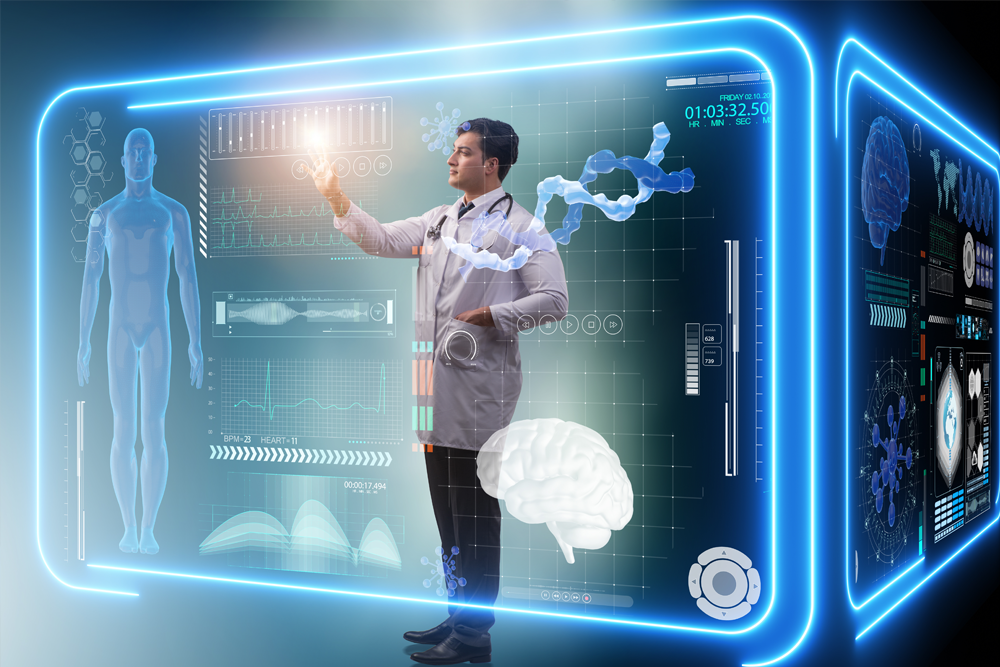
AI-Powered Revolution in Healthcare: Detecting Cancer EARLierAI-Powered Revolution in Healthcare: Detecting Cancer EARLier Artificial Intelligence (AI) is rapidly transforming the healthcare industry, with groundbreaking advancements in disease detection and diagnosis. One of the most promising applications of AI is in the early detection of cancer, where traditional methods often fall short. Challenges of Early Cancer Detection Early cancer detection is crucial for successful treatment and improved patient outcomes. However, conventional screening methods, such as mammograms and biopsies, can be invasive, expensive, and unreliable. Additionally, many cancers develop asymptomatically, making detection challenging until symptoms manifest. AI Empowers EARLier Detection AI-powered algorithms provide a novel approach to cancer detection. By analyzing vast amounts of medical data, including images, genomic information, and patient history, AI can identify subtle patterns and anomalies that escape the human eye. This enables physicians to detect cancer earlier, even before overt symptoms appear. Specific Applications * Chest X-ray Analysis: AI algorithms can analyze chest X-rays to detect nodules, masses, and other abnormalities indicative of lung cancer, even at early stages. * Mammogram Interpretation: AI assists radiologists in interpreting mammograms by identifying suspicious lesions that may otherwise be overlooked. * Genetic Screening: AI can analyze genomic data to identify genetic mutations linked to an increased risk of certain cancers, enabling personalized screening and preventive measures. Benefits of EARLier Detection The benefits of EARLier cancer detection through AI are profound: * Improved Patient Outcomes: Earlier detection leads to more effective treatment and improved survival rates. * Reduced Invasive Procedures: AI algorithms can reduce the need for unnecessary biopsies and other invasive diagnostic procedures. * Personalized Medicine: AI-enabled early detection allows for tailored treatment plans based on individual risk factors and disease subtypes. Future Prospects The AI-powered revolution in healthcare is still in its early stages. As AI technologies continue to advance, we can expect even more sophisticated and accurate cancer detection tools. AI algorithms are likely to integrate with wearable devices and telemedicine platforms, enabling remote monitoring and personalized risk assessments. Conclusion AI is transforming the landscape of cancer detection. By empowering EARLier diagnosis, AI algorithms hold immense promise for improving patient outcomes, reducing invasive procedures, and advancing personalized medicine. As AI technology evolves, we can anticipate even greater strides in the fight against cancer.
Posted inNews